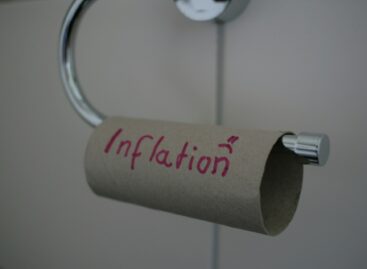Many Hungarian-owned stores are also in trouble due to the one billion markup limit
“Close.” – this is how the manager of a rural franchise store answered the question of what he could do in the shadow of the newly introduced margin freeze. And he is not alone: the majority of retailers who spoke to the G7 talked about layoffs, reorganization, cost reductions, or even complete withdrawal.
 The decree introduced by the government at the end of February obliges companies whose sales revenue in 2023 exceeded one billion forints to maximize the margin on basic foodstuffs. The goal is to curb inflation – but practice shows that the regulation adversely affects the most vulnerable domestic stores.
The decree introduced by the government at the end of February obliges companies whose sales revenue in 2023 exceeded one billion forints to maximize the margin on basic foodstuffs. The goal is to curb inflation – but practice shows that the regulation adversely affects the most vulnerable domestic stores.
A few million forints decide fates
The example of Hendrosz Kft. in Jánoshalma clearly illustrates the essence of the problem: they exceeded the one billion mark by only 7.29 million forints – yet they have to apply the margin freeze. Meanwhile, a Spar partner store in Budapest, whose turnover was barely below this, is exempt from the obligation.
The rule therefore seems arbitrary, and moreover it places a disproportionate burden on those retailers who in many cases have built up their store network with decades of work. According to the manager of Hendrosz Kft., store closures are also conceivable, while the city’s population is constantly decreasing and costs are skyrocketing – from energy prices to contributions.
Small stores, in big trouble
It is estimated that 160–180 companies fall under the regulation, most of them domestically owned, rural retailers operating as franchise partners of one of the large chains. In these stores, basic products (e.g. milk, sugar, bread) that are subject to the 10% margin ceiling typically account for 40–50% of the total turnover.
Since these products have typically generated margins of 30–50%, the current restrictions make it impossible for some players to operate profitably. Most companies do not yet know how to react: separating stores, expanding warehouse capacity, rethinking inventory management have been discussed – but none of them offers a sure escape route.
Related news
Margin freeze stirs up emotions in the drugstore market
🎧 Hallgasd a cikket: Lejátszás Szünet Folytatás Leállítás Nyelv: Auto…
Read more >The government has extended the margin freeze
🎧 Hallgasd a cikket: Lejátszás Szünet Folytatás Leállítás Nyelv: Auto…
Read more >A large wave of price increases is expected in trade
🎧 Hallgasd a cikket: Lejátszás Szünet Folytatás Leállítás Nyelv: Auto…
Read more >Related news
State compensation for the victims of Bászna Gabona Zrt. has been completed
🎧 Hallgasd a cikket: Lejátszás Szünet Folytatás Leállítás Nyelv: Auto…
Read more >József Viski: Adaptation and competitiveness are key for the horticultural sector
🎧 Hallgasd a cikket: Lejátszás Szünet Folytatás Leállítás Nyelv: Auto…
Read more >









